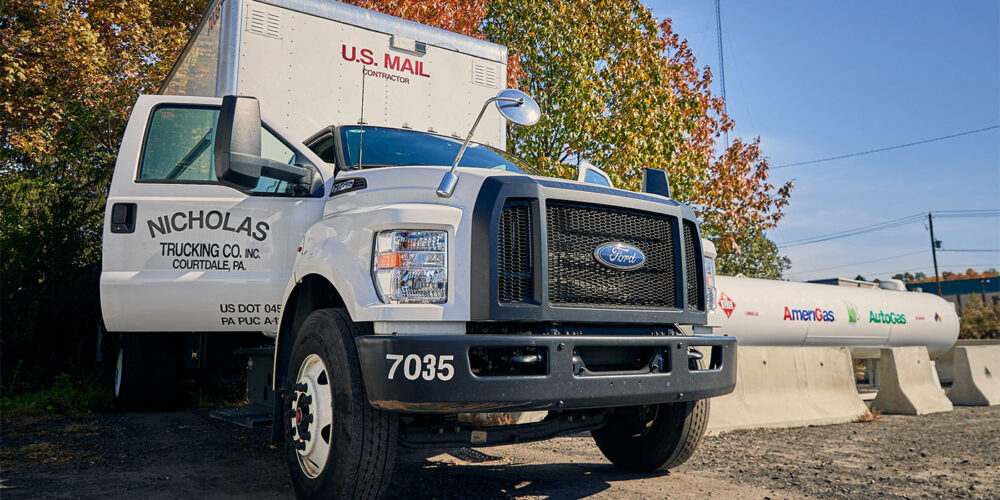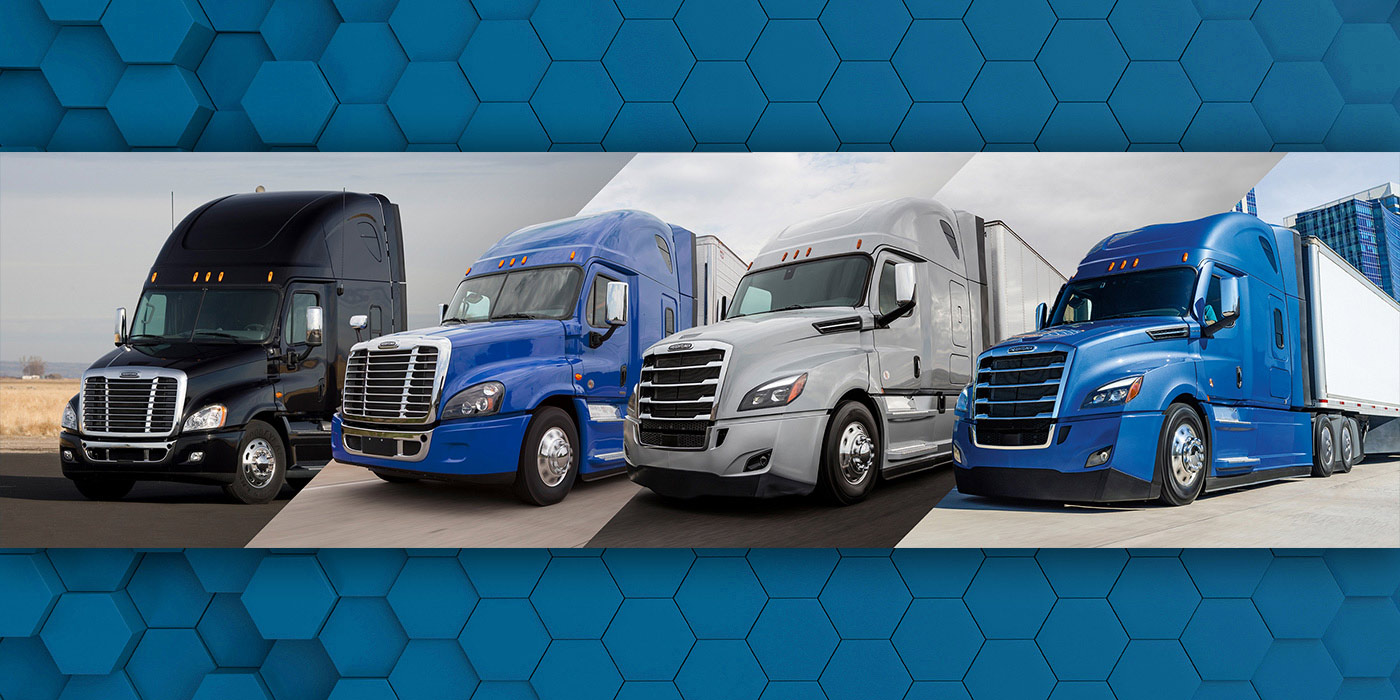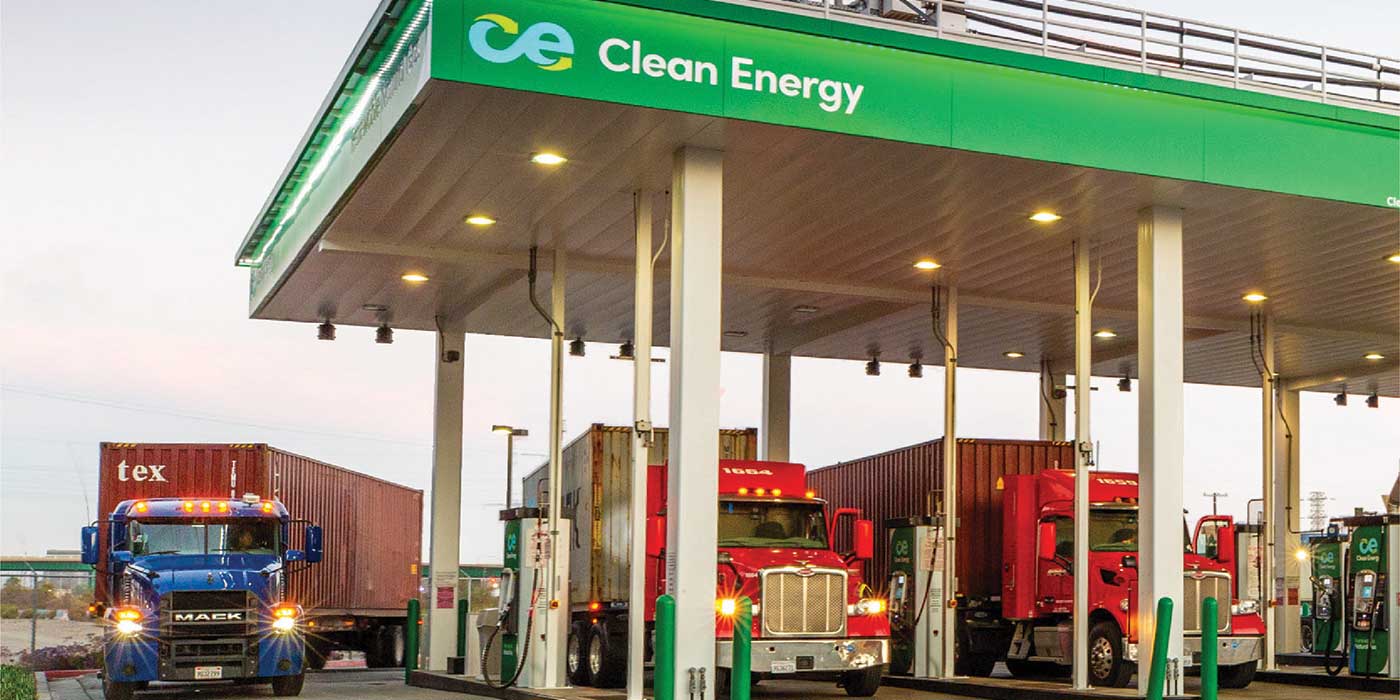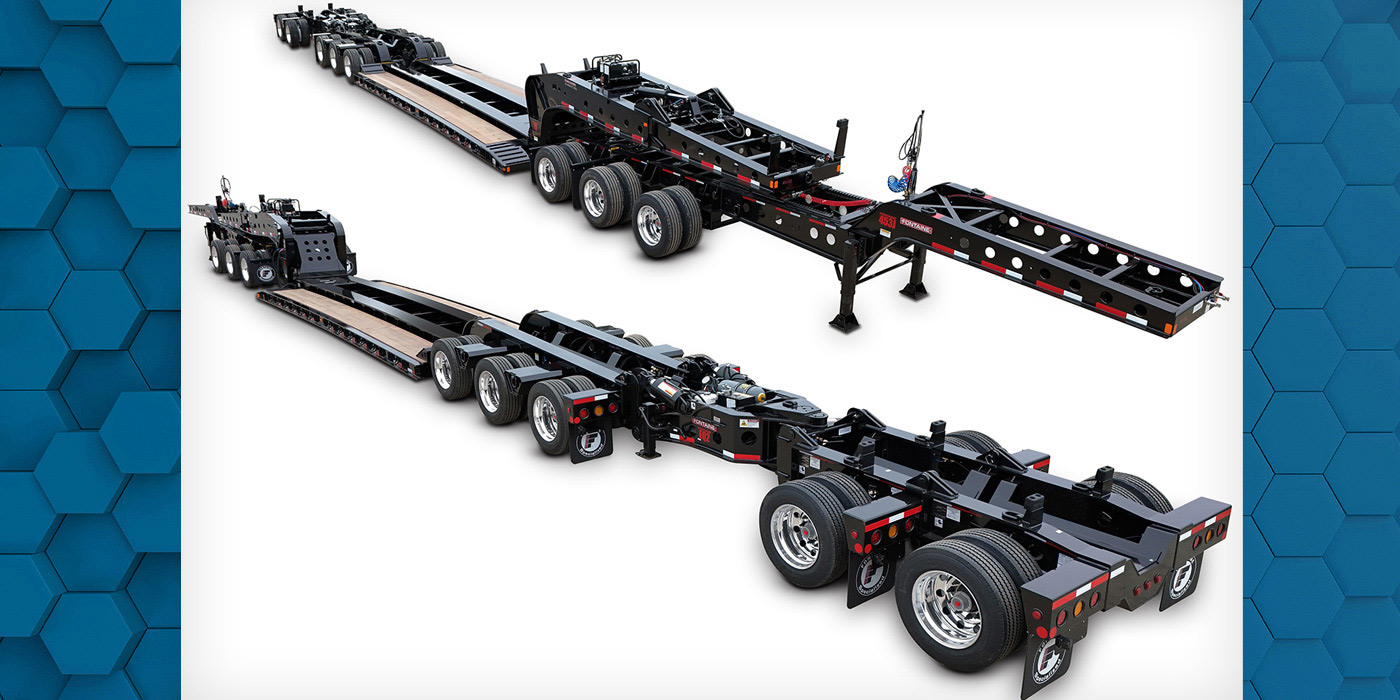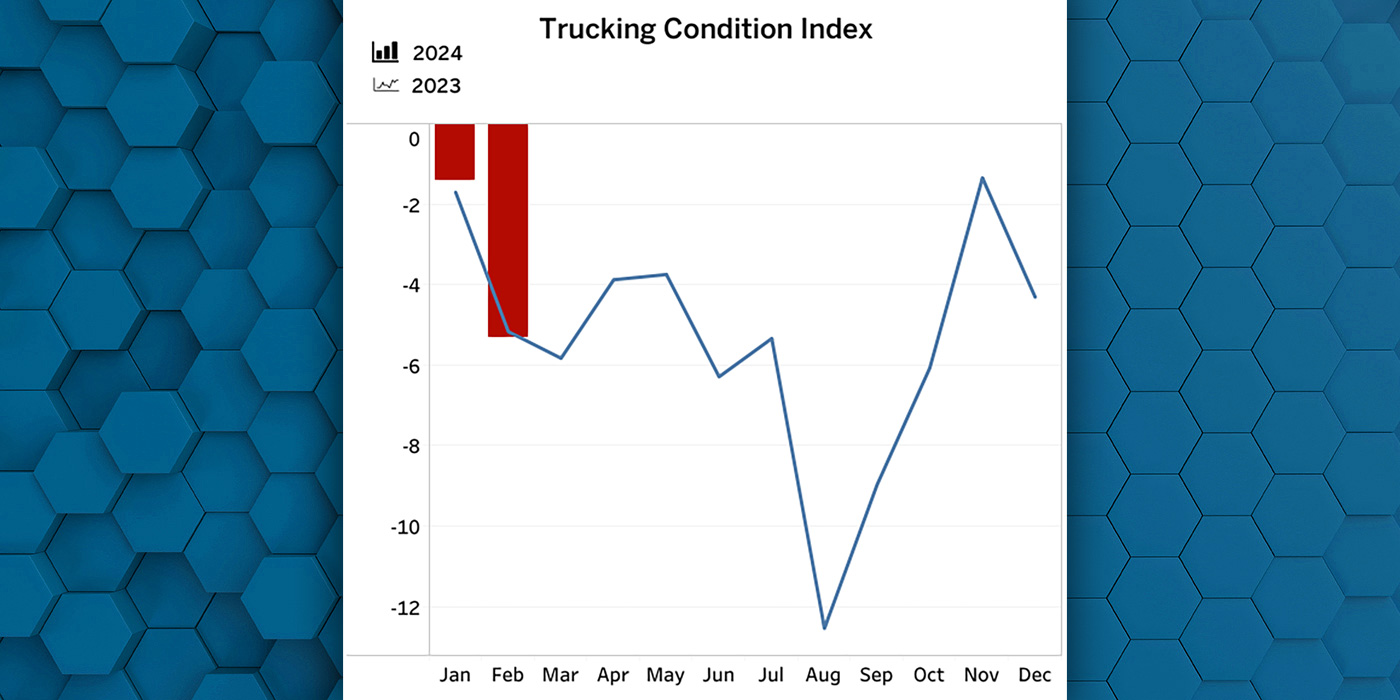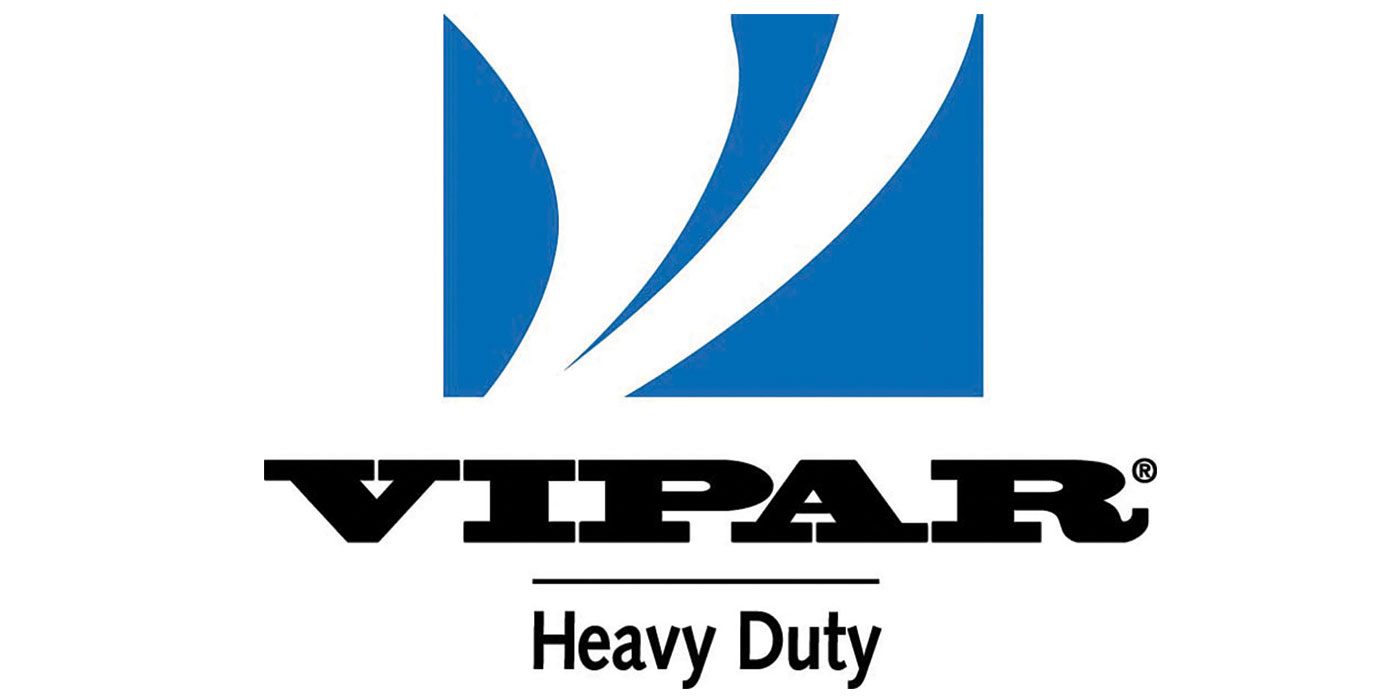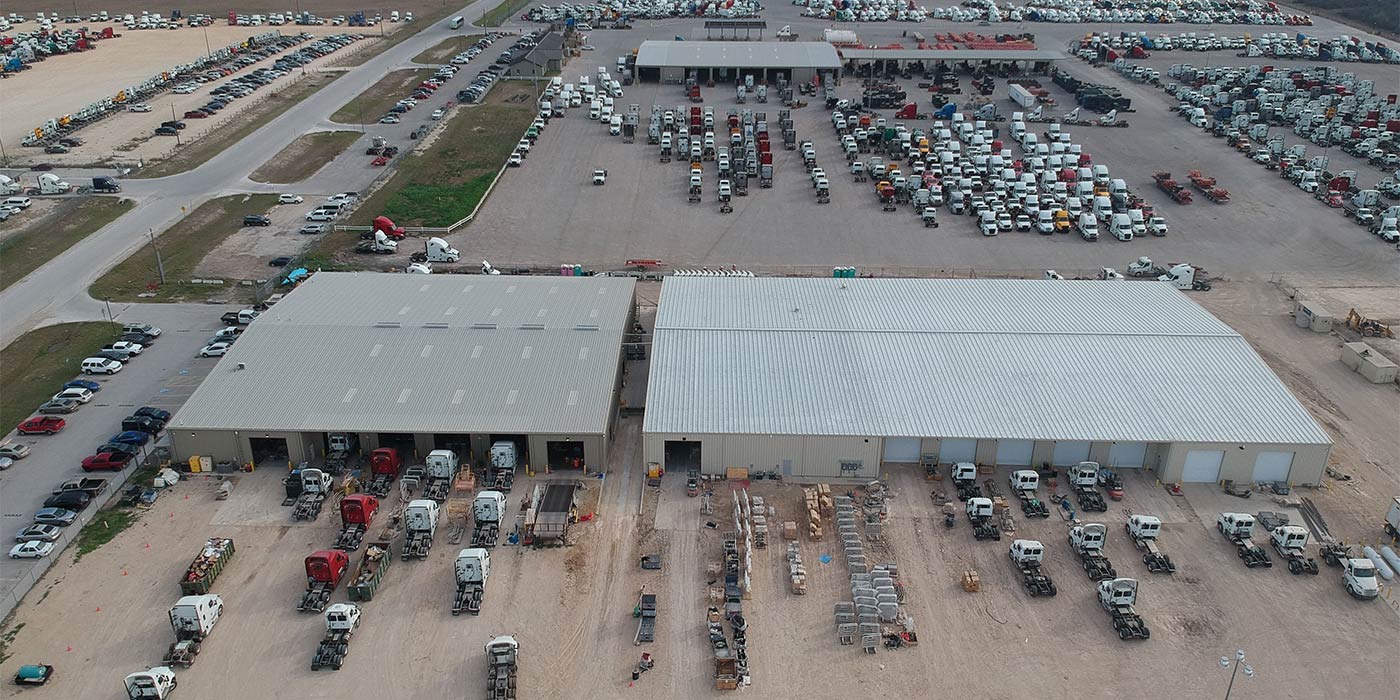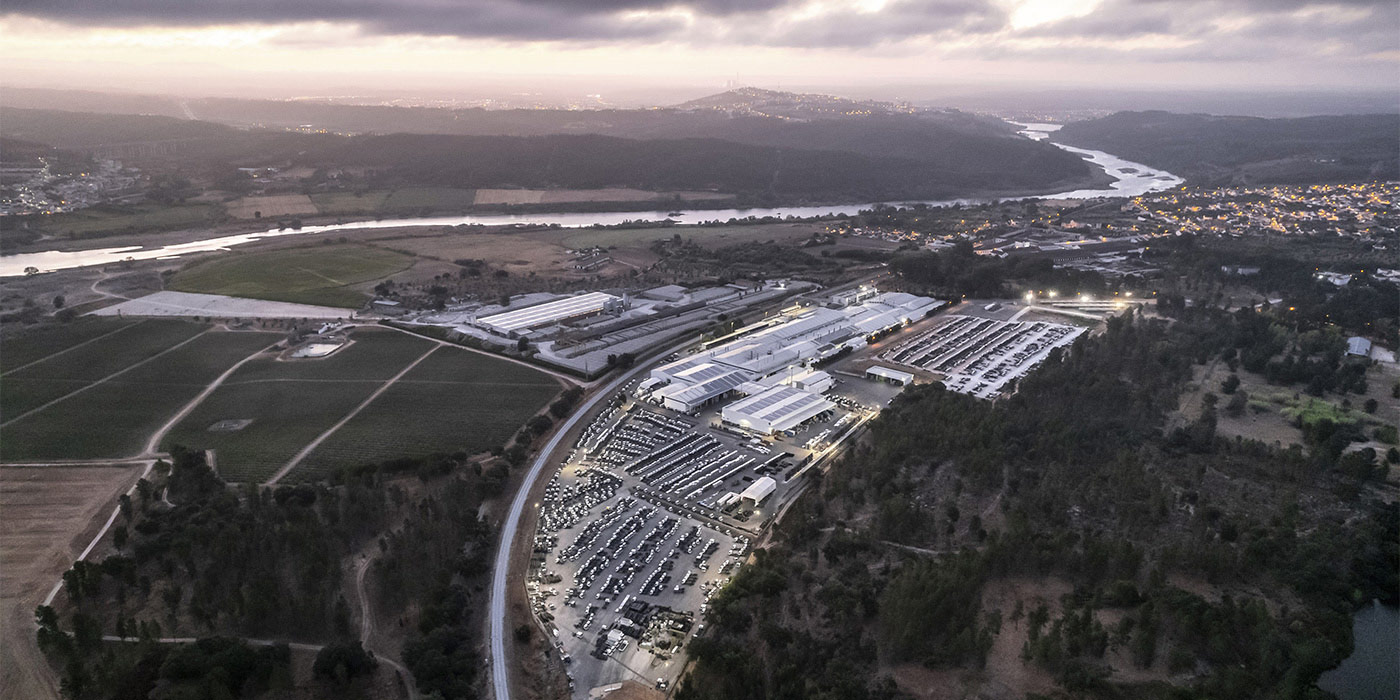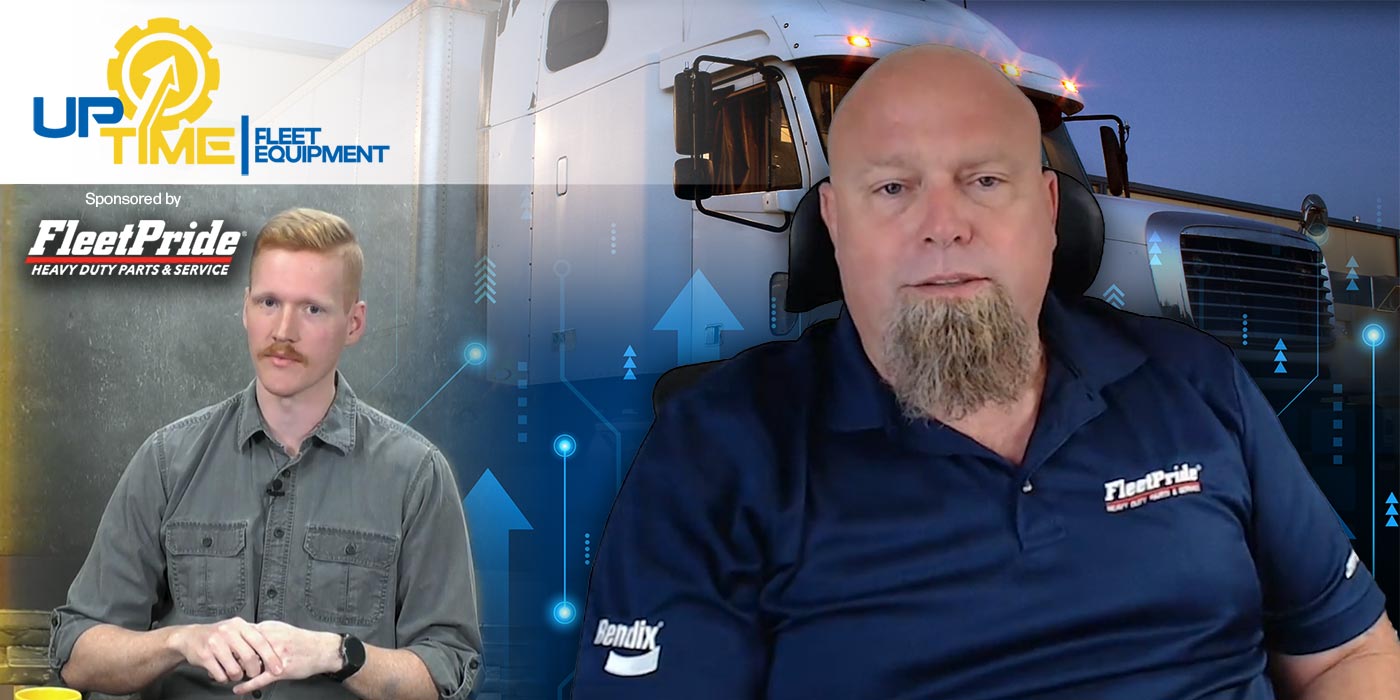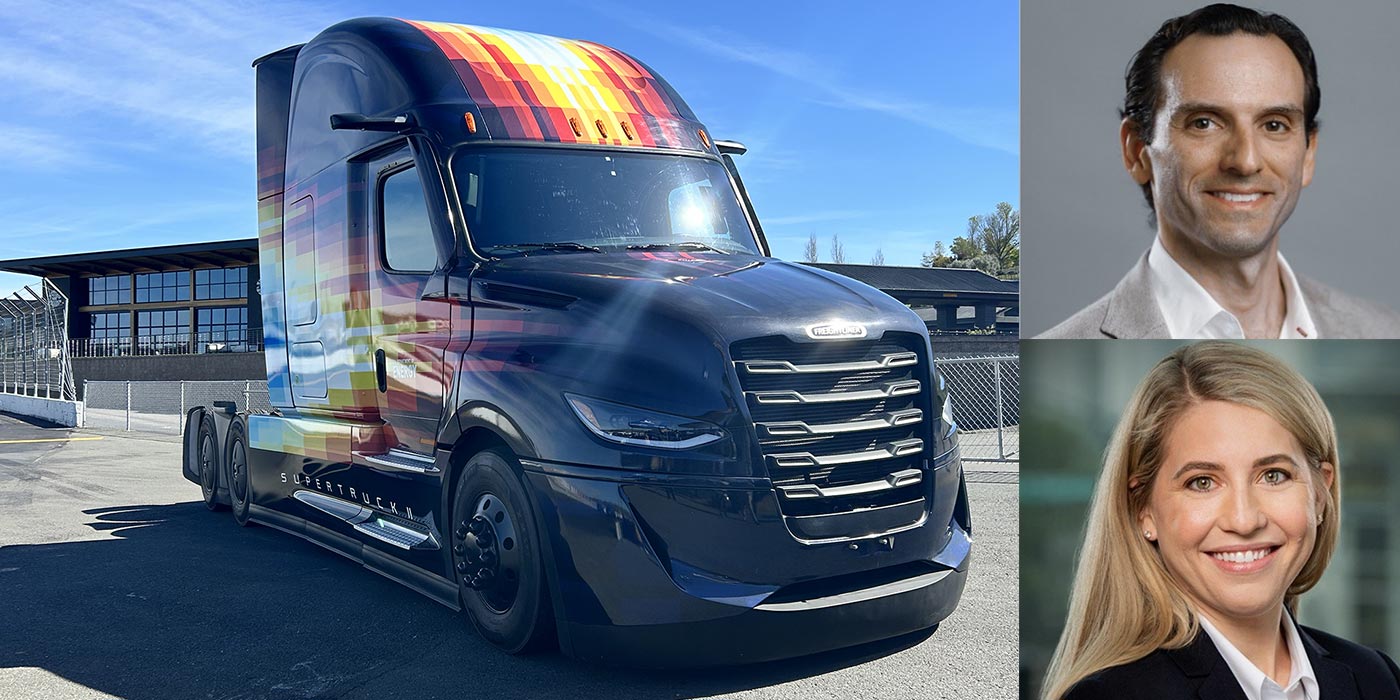Does the idea of saving more than 50% in fuel costs sound appealing? No, we’re not talking about running fewer miles or downsizing your fleet. What we are talking about instead is the experience at Nicholas Trucking Co. Inc., a dedicated U.S. mail contractor based in Courtdale, Penn., who has the numbers to prove it can happen.
Motivated by the rising cost of diesel, Chief Operations Officer Alexander Nicholas decided it was time to try something new. In March of this year, the fleet took delivery of its first propane powered vehicles, a move that is already paying off.
“Propane is currently costing us less than half the per gallon price of diesel, so we’re saving 53% on fuel to start,” Nicholas said. “At the same time, the propane trucks are averaging 13.5 MPG compared to 9.5 MPG for diesel, so we’re using about one third less fuel on those routes. On top of that we will get $0.37 per gallon in additional savings through the federal alternative tax credit.”
Nicolas is expecting maintenance cost savings as well, noting that the propane engines do not have the aftertreatment service needs required with diesels, such as Diesel Particulate Filter cleanings. There is also no cost for diesel exhaust fluid. Still, the propane trucks come at a higher price so to offset the added initial cost, Nicholas Trucking received $93,000 in grant money through the Pennsylvania Department of Environmental Protection’s Driving PA Forward program. The initiative provides opportunities for fleets to fund the replacement of older diesel engines with clean transportation technologies.
The first three propane powered trucks to join the Nicholas Trucking fleet are Ford F-750 Class 6 chassis rated at 26,000 lbs. GVW. Sourced through Rush Medium Duty Truck Center, the trucks are factory equipped with 350-HP Ford 7.3-liter V8 gas engines. The powerplants are outfitted for propane fuel by Roush CleanTech, the developer of propane autogas technology for medium-duty Ford commercial vehicles.
Other specs for the Ford F-750s at Nicholas Trucking include a 260-inch wheelbase and a Mickey Truck Bodies dry freight cargo box. The trucks are equipped with Ford TorqShift HD six-speed automatic transmissions, Dana front and rear axles, and 275/80R22.5 Michelin X Multi Energy Z tires.
“We had other concerns as well before we made the decision to replace some of our diesel trucks with propane powered models, but all of those have been addressed,” Nicholas related. “The range of the propane trucks between fills was one question but with a fleet that operates within 100 miles of our base daily and an estimated range of 250 miles per tank that was quickly alleviated.
“While we weren’t concerned with the safety of propane as a vehicle fuel because we’re familiar with it for heat and cooking, we did question how it would handle winter and summer weather,” Nicholas continued. “So far there have been no cold related problems like the gelling we’ve seen with diesel, and heat expansion wasn’t an issue when it was hot outside either.”
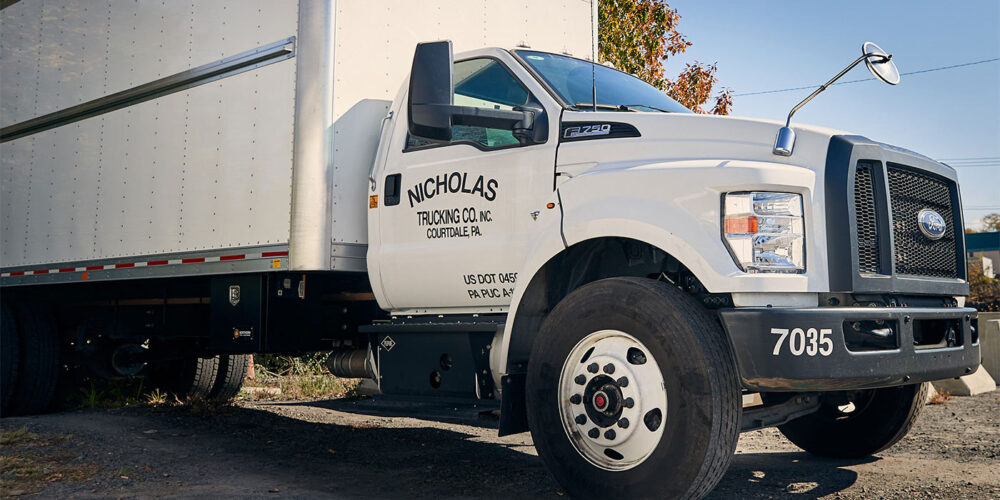
Unlike the charging infrastructure challenges fleets are facing when adopting electric trucks, Nicholas had no concerns about having a steady supply of propane. Through AmeriGas it installed a 2,000-gallon tank and pump on its property. “For driver safety the pump is equipped with a nozzle that has to be properly locked in place before fuel will flow,” Nicholas explained. “We also give our drivers gloves and face masks for added protection.”
As for driver acceptance, Nicholas related that initial reluctance about the propane vehicles was quickly erased once they had an opportunity to drive them. “Drivers were our biggest concern,” he said. “There was some grumbling beforehand but now they say they are pleased with the power of the propane vehicles, especially while navigating the hilly terrain of northern Pennsylvania, and there is no diesel exhaust smell either.”
High marks for the propane trucks are coming from the fleet’s four in-house mechanics as well. “Our maintenance staff say that the propane trucks are easier to work on than they thought,” Nicholas said. “In fact, without needing any special training they are able to handle nearly everything. We only need to call the dealer if any propane system or warranty issues come up, but we haven’t had any problems.”
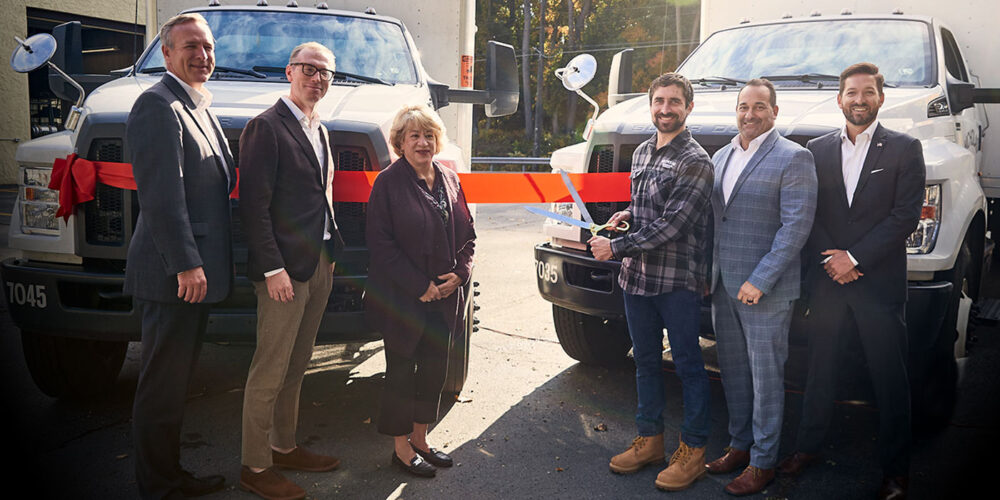
Based in in the Scranton-Wilkes-Barre area, Nicholas Trucking is a fourth-generation family business that was started in the 1940s with a single truck running one postal contract. Today, the company has eight contracts to haul mail and its 40 trucks run over 1.27 million miles per year or roughly 3,500 per truck daily, seven days a week.
Propane also fits with the desire at Nicholas Trucking to find a greener alternative for its fleet. “Vehicles that run on propane emit fewer greenhouse gases, smog-producing hydrocarbons, and particulate emissions than conventional fuels,” Nicholas said. “The propane engines in our trucks are 90% cleaner than the Environmental Protection Agency’s most stringent standards.
“We hope to fund the purchase of at least five more propane trucks within the next year by using the savings we’re realizing and when new grants become available,” Nicholas said. “We’d buy more now if we had the money because that would get us closer to our goal of transitioning away from diesel by continually adding more near-zero-emission vehicles to our fleet.”

